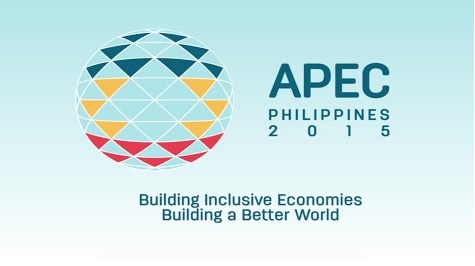G20, APEC summits highlight role of China in global economic governance

The 23rd APEC Economic Leaders’ Meeting is held in Manila, the Philippines from Nov. 17 to 19.
Chinese President Xi Jinping attended the 10th G20 Leaders Summit in Antalya, Turkey, from Nov. 14 to 16 and the 23rd APEC Economic Leaders Meeting in Manila, the Philippines, from Nov. 17 to 19. Scholars pointed out three highlights of Xi’s participation in the two summits.
Above all, the summits conveyed a confident message from China, scholars said. As Xi said in his speech at the G20 summit, “Here I want to make it clear that we have the confidence and ability to sustain a moderately high growth rate and continue to create development opportunities for other countries.” In his address to the Asia-Pacific Economic Cooperation summit, Xi also said China’s positive economic fundamentals and long-term trajectory remain unchanged.
At present, there is worry around the world about the downward pressure, structural transformation and upgrading of China’s economy. At the same time, the world is undergoing sluggish economic development, and many institutions, including the International Monetary Fund, have lowered the expectations for world economic growth. “Through the G20 summit, a platform for global economic governance, and the APEC summit, a platform for Asia-Pacific economic and trade cooperation, Xi elaborated on the bright prospects of the Chinese economy, which have given confidence to the world,” said Song Guoyou, director of the Research Center for Economic Diplomacy Studies at Fudan University.
“Given the current share of China in the world economy, the largest contribution China can make to the world is to maintain the steady growth of its national economy,” said Tu Xinquan, executive director of the China Institute of WTO Studies at the University of International Business and Economics. The recently adopted Proposal for Formulating the 13th Five-Year Plan (2016-2020) put forward the idea of pursuing innovative, coordinated, green, open and shared development. This means that China is committed to achieving moderately high growth through restructuring and innovation. He said such a strategy, compared with the previous factor-driven approach, focuses on balanced and sound development and is more sustainable.
In addition, scholars applauded the Chinese proposition to develop an open world economy. “In his remarks, Xi offered Chinese perspectives and proposals to address world economic issues,” said Wang Yong, a professor of the School of International Studies at Peking University.
Xi proposed to build an open global economy as a solution to the world's economic difficulties at the G20 summit and as a way to promote Asia-Pacific economic development at the APEC summit.
“China is endeavoring to build an open economic system, which will bring new opportunities to the world,” Song said, noting that negotiations on upgrading the China-ASEAN Free Trade Area are nearing completion. He added that China-Australia and China-South Korea free-trade agreements are expected to take effect by the end of this year, and China will continue to reform the foreign investment regulations and give foreign investment greater market access.
Moreover, the Chinese city of Hangzhou will host the 2016 G20 summit, which scholars said is another significant opportunity for China to participate in global economic governance like the 2014 APEC summit in Beijing. And its theme will be "Building an Innovative, Invigorated, Interconnected and Inclusive World Economy." Wang said the 2016 summit will focus on coordinating macroeconomic policy, creating an open environment for investment and trade, and realizing inclusive growth.
Mao Li is a reporter at the Chinese Social Sciences Today.
